 "The Mausoleum's Children" by Aliette de Bodard in Uncanny Magazine Issue 52, May-June 2023 by Aliette de Bodard
"The Mausoleum's Children" by Aliette de Bodard in Uncanny Magazine Issue 52, May-June 2023 by Aliette de Bodard Format: ebook
Source: supplied by publisher via Hugo Packet
Formats available: magazine, ebook
Genres: Dark Fantasy, science fiction, short stories
Series: Uncanny Magazine Issue 52
Pages: 20
Published by Uncanny Magazine on May 2, 2023
Purchasing Info: Author's Website, Publisher's Website, Amazon, Barnes & Noble, Kobo
Goodreads
The May/June 2023 issue of Hugo Award-winning Uncanny Magazine .
Featuring new fiction by Aliette de Bodard, Kylie Lee Baker, Lindsey Godfrey Eccles, Fran Wilde, Ewen Ma, Theodora Ward, and K.S. Walker. Reprint fiction by Chimedum Ohaegbu. Essays by Caroline M. Yoachim, LaShawn M. Wanak, Hana Lee, and Sam J. Miller, poetry by Nnadi Samuel, Jennifer Mace, Tehnuka, and Angela Liu, interviews with Kylie Lee Baker and Ewen Ma by Caroline M. Yoachim, a cover by Antonio Caparo, and an editorial by Lynne M. Thomas and Michael Damian Thomas.
Uncanny Magazine is a bimonthly science fiction and fantasy magazine first published in November 2014. Edited by 2016, 2017, 2018, 2019, 2020, & 2022 Hugo award winners for best semiprozine, and 2018 Hugo award winners for Best Editor, Short Form, Lynne M. Thomas and Michael Damian Thomas, Meg Elison, and Monte Lin, each issue of Uncanny includes new stories, poetry, articles, and interviews.
My Review:
Welcome back to my bounce through this year’s Hugo nominations. Today’s foray into my quest to read the nominees that I didn’t get to last year is back in the Best Short Story (under 7,500 words) nominees with Aliette de Bodard’s “The Mausoleum’s Children”.
 I put this particular story towards the front of the list because of the author. I’ve very much enjoyed her Universe of Xuya series – which is nominated for Best Series, BTW – and hoped for something in that series – although I should have known better because that’s against the rules – or at least something like that series – which would have been allowed.
I put this particular story towards the front of the list because of the author. I’ve very much enjoyed her Universe of Xuya series – which is nominated for Best Series, BTW – and hoped for something in that series – although I should have known better because that’s against the rules – or at least something like that series – which would have been allowed.
I didn’t get what I was hoping for, but I think it did help that I have dipped into Xuya, as this is a story about returning to a place of former trauma, which just so happens to be a crashed ships’ graveyard.
Those crashed ships were once the kind of ship minds – at least sorta/kinda – who are some of the marvelous characters in Xuya. So I had the feeling this story was walking through their graves – and that bits of those minds still lingered, battered and broken and lost in endless nightmares.
But they’re not really the story. Instead, the story follows one human – or maybe I should say one person – who escaped from that ships’ graveyard as a child. Thuận Lộc is now an adult, forever scarred by her experiences, never fitting in anywhere in the world outside the mausoleum and desperate enough to return and attempt to save the people with whom she belongs – even if that attempt might mean her death.
In other words, she’s been living her whole, entire, supposedly ‘free’ life with a heaping helping of survivor’s guilt and she’s come to the conclusion that the only way out is through. One way or another.
Escape Rating B-: There’s a lot to unpack in this story and perhaps the suitcase it’s packed in wasn’t quite big enough in the first place.
 The obvious bit is wrapped around Thuận Lộc’s need to belong, her guilt about not bringing her peeps out with her, and her attempt to assuage just a piece of that trauma. But there’s also more than a bit about abuse and its victims, Stockholm Syndrome writ very, very large, and the rapaciousness of greed for power in all forms and the way that some people try to escape evil by getting on top of it or allowing themselves to be co-opted by it.
The obvious bit is wrapped around Thuận Lộc’s need to belong, her guilt about not bringing her peeps out with her, and her attempt to assuage just a piece of that trauma. But there’s also more than a bit about abuse and its victims, Stockholm Syndrome writ very, very large, and the rapaciousness of greed for power in all forms and the way that some people try to escape evil by getting on top of it or allowing themselves to be co-opted by it.
I was, honestly, hoping for better from this story than I got. It wasn’t bad, I did like the central character and did feel for her, but the ending only worked because I was equating the ships in the mausoleum to the living ships from Xuya and that wasn’t in the text at all, it’s just the connection my brain went to in order to grasp something.
The premise at the heart of the story, trauma and survivors’ guilt and Stockholm Syndrome and the dangers of getting sucked back in but needing to go to expiate one’s demons – well, that’s been done much, much better in Premee Mohamed’s The Butcher of the Forest – a story that seems even better in comparison with “The Mausoleum’s Children”.
Two down in the Short Story category, four to go in the weeks ahead.

 "One Man's Treasure" by Sarah Pinsker in Uncanny Magazine Issue 50, January-February 2023 by
"One Man's Treasure" by Sarah Pinsker in Uncanny Magazine Issue 50, January-February 2023 by  Dear Edna Sloane by
Dear Edna Sloane by  A Mischief of Rats by
A Mischief of Rats by 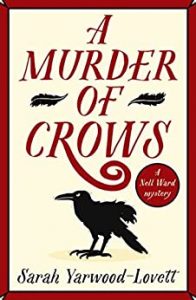 Whichever of her two personas is her alter ego, both of them are entirely too busy during the jam-packed weekend this story takes place.
Whichever of her two personas is her alter ego, both of them are entirely too busy during the jam-packed weekend this story takes place.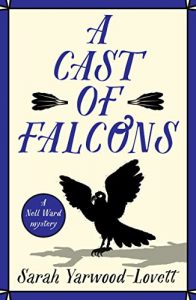 Escape Rating B-: This third book in the
Escape Rating B-: This third book in the  I admit that this is a ‘me’ thing that may not be a ‘you’ thing. Howsomever, for this reader it feels like Nell’s romantic trials and tribulations are a bit over the top, particularly as her rich and aristocratic background – along with her surprisingly functional relationship with her parents – seem to have insulated her from a whole lot of regular stresses and issues to the point where over-the-top is the only direction left.
I admit that this is a ‘me’ thing that may not be a ‘you’ thing. Howsomever, for this reader it feels like Nell’s romantic trials and tribulations are a bit over the top, particularly as her rich and aristocratic background – along with her surprisingly functional relationship with her parents – seem to have insulated her from a whole lot of regular stresses and issues to the point where over-the-top is the only direction left.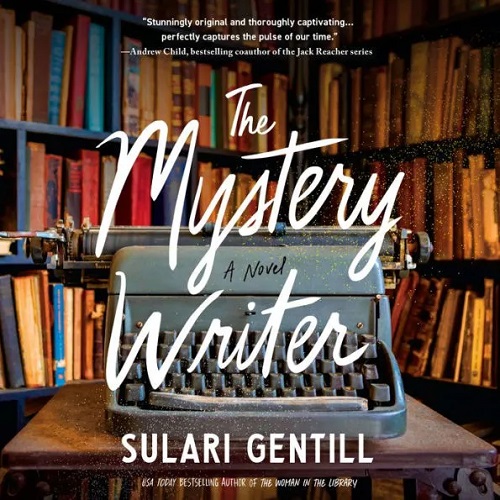 The Mystery Writer by
The Mystery Writer by  Escape Rating B-: I picked this up because I LOVED the author’s previous book,
Escape Rating B-: I picked this up because I LOVED the author’s previous book, 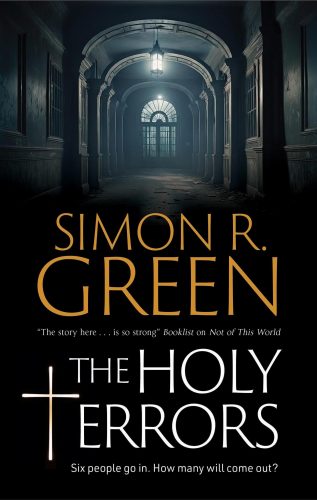 The Holy Terrors (A Holy Terrors mystery) by
The Holy Terrors (A Holy Terrors mystery) by 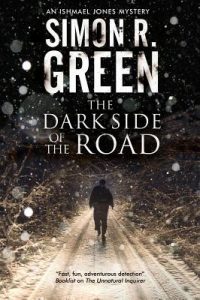 Escape Rating B-: I ended up with a LOT of mixed feelings about this one, some of which may have to do with having no love or even liking for so-called reality TV. (Although, honestly, if the author has any love for that genre it’s a particularly twisted version of it.)
Escape Rating B-: I ended up with a LOT of mixed feelings about this one, some of which may have to do with having no love or even liking for so-called reality TV. (Although, honestly, if the author has any love for that genre it’s a particularly twisted version of it.)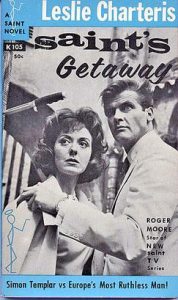 It niggled at me through the whole book as something familiar, but I was caught up just enough in the mystery at hand and the bell didn’t ring until AFTER I finished the book. Because that phrase, in popular parlance in British in the 1930s,
It niggled at me through the whole book as something familiar, but I was caught up just enough in the mystery at hand and the bell didn’t ring until AFTER I finished the book. Because that phrase, in popular parlance in British in the 1930s, 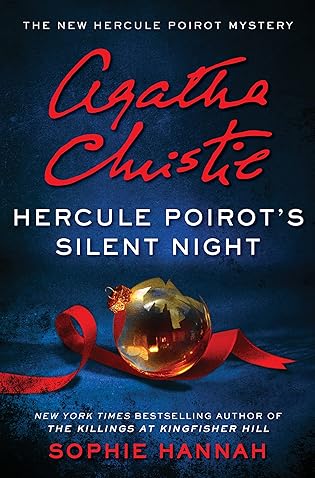 Hercule Poirot's Silent Night (New Hercule Poirot Mysteries, #5) by
Hercule Poirot's Silent Night (New Hercule Poirot Mysteries, #5) by  Scotland Yard Inspector Edward Catchpool and his friend and mentor Hercule Poirot are just settling in to a two-week staycation (even if that term had not been invented yet) in London, staying in Poirot’s rather palatial apartment at Whitehaven Mansions, attended by Poirot’s inestimable butler, George, for the duration of the holidays.
Scotland Yard Inspector Edward Catchpool and his friend and mentor Hercule Poirot are just settling in to a two-week staycation (even if that term had not been invented yet) in London, staying in Poirot’s rather palatial apartment at Whitehaven Mansions, attended by Poirot’s inestimable butler, George, for the duration of the holidays.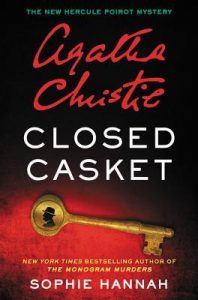 Escape Rating B-: Looking back at my reviews of the previous books in this
Escape Rating B-: Looking back at my reviews of the previous books in this 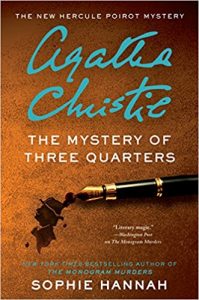 A lot of the ‘action’ of the story, particularly the ‘fair play’ aspects of the mystery and its resolution, were handled as more ‘telling’ than showing, as the two detectives were often working separately, and only caught up at irregular intervals through meticulous reports – which is how the reader gets caught up as well.
A lot of the ‘action’ of the story, particularly the ‘fair play’ aspects of the mystery and its resolution, were handled as more ‘telling’ than showing, as the two detectives were often working separately, and only caught up at irregular intervals through meticulous reports – which is how the reader gets caught up as well. Stephen Leeds: Death and Faxes by
Stephen Leeds: Death and Faxes by 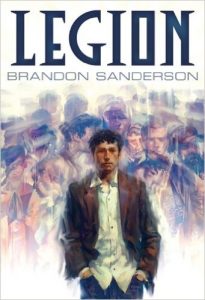 The case that finds Stephen Leeds in this audio-only entry in the
The case that finds Stephen Leeds in this audio-only entry in the 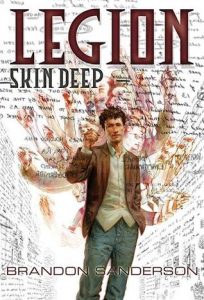 It’s only the beginning, because Stephen is determined to get to the bottom of this case, following a trail of victims around the country even as the structure of his increasingly fragile mental landscape falls into tatters.
It’s only the beginning, because Stephen is determined to get to the bottom of this case, following a trail of victims around the country even as the structure of his increasingly fragile mental landscape falls into tatters.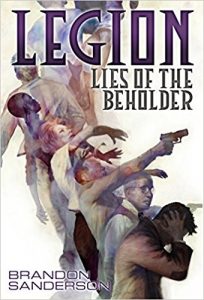 So I wasn’t expecting to see Stephen Leeds again when I found this audio-only entry in the series. An entry that doesn’t occur AFTER
So I wasn’t expecting to see Stephen Leeds again when I found this audio-only entry in the series. An entry that doesn’t occur AFTER 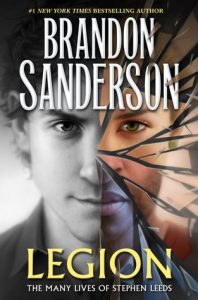 So, a whole lot of mixed feelings, leaving me with the conclusion that fans of the series, like me, will probably enjoy the trip down memory lane to visit Stephen and his aspects again. (However, the comment in the blurb about Stephen being perfectly sane but his hallucinations all being quite mad isn’t merely a bit off – it’s completely wrong. A fair number of his aspects are quirky and/or eccentric, but none of them are actually ‘mad’, and neither is Stephen Leeds. His coping mechanism is just eccentric and sometimes expensive, but works for him and does no harm to anyone else. There are worse ways to get by.)
So, a whole lot of mixed feelings, leaving me with the conclusion that fans of the series, like me, will probably enjoy the trip down memory lane to visit Stephen and his aspects again. (However, the comment in the blurb about Stephen being perfectly sane but his hallucinations all being quite mad isn’t merely a bit off – it’s completely wrong. A fair number of his aspects are quirky and/or eccentric, but none of them are actually ‘mad’, and neither is Stephen Leeds. His coping mechanism is just eccentric and sometimes expensive, but works for him and does no harm to anyone else. There are worse ways to get by.) Shark Heart by
Shark Heart by 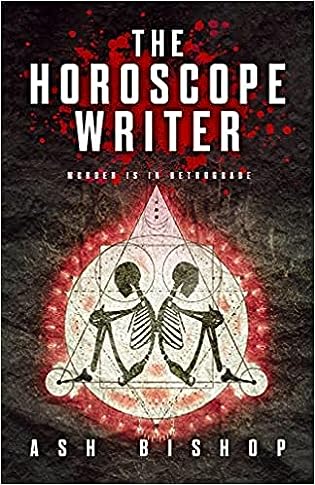 The Horoscope Writer by
The Horoscope Writer by  Escape Rating B-: I picked up The Horoscope Writer because I reviewed the author’s debut novel,
Escape Rating B-: I picked up The Horoscope Writer because I reviewed the author’s debut novel,